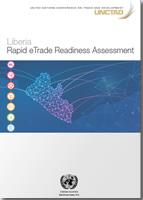
It is clear that for Liberia to become a more e-commerce ready country, progress is required on multiple fronts involving multiple stakeholders.
The Government will need to ensure that progress on implementing existing strategies and regulations continues, and gaps are filled. E-government initiatives, as well as infrastructure development projects, will need to continue at a brisk pace.
Banks, telecommunication firms, and academia are all ready to contribute to the continued growth of the ecommerce ecosystem. This collaboration must be leveraged to realize the potential of e-commerce for economic and socio-economic growth.
The Government has expressed the willingness to work with stakeholders across the board– including the private sector–to discuss issues relevant to the digital economy. Leading firms have proven to some extent the willingness of the markets to respond to e-commerce offerings, with promising results. In this regard, the proverbial stars thus are aligned. The following are the key tangible and indirect contributions that e-commerce can make towards Liberia’s growth trajectory.
Bring previously disconnected private sector players closer to domestic and international markets, facilitating trust development in the medium-long term.
Contribute to reducing high import dependency vis-à-vis consumption goods in the domestic market.
Contribute to sector development efforts for the economy, for instance, IT, tourism, professional services (graphic design, marketing and branding, content generation) due to downstream value chain linkages.
Enhance trade competitiveness of Liberian firms by:
Facilitating inputs sourcing for productive consumption by firms (B2B).
Facilitating Liberian exports to international markets (B2C).
Support inclusive growth involving increased economic participation of MSMEs, women and youth, who are not currently meaningfully integrated in the economy.
Contribute to economic development efforts across the 15 ECOWAS countries.
In order to actualize the gains from e-commerce, the Government of Liberia will require sustained technical and financial support from development partners.
The action matrix at the end of this report identifies the critical areas of focus and also identifies potential partners whose mandates aligns with the scope of the activity.
E-commerce is increasingly viewed among both Liberian policymakers and the private sector as a potentially important driver of economic and socioeconomic growth in Liberia.
The road ahead may prove to be rocky as the understanding throughout the ecosystem on overall e-commerce potential and challenges evolves gradually. However, as this assessment confirms, the potential is immense.


